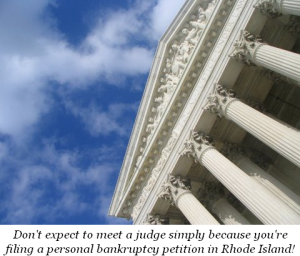When you file bankruptcy in Rhode Island, you should list everyone you owe money to. If you fail to list a creditor, you risk not getting off the hook for that particular debt. How can you avoid leaving a creditor out of your bankruptcy filing? Typically a credit report will identify most of your creditors. (Once every 12 months you can order a free credit report through annualcreditreport.com, or by calling 877-322-8228.)
However, not all debts will appear on your credit report. Medical bills, utility bills, and cell phone bills are often missing from credit reports, as are outstanding gym membership fees, unpaid magazine subscriptions, etc. In addition, debts that have been unpaid for more than seven years may stop showing up on a credit report. But if you don’t list them they might come back to haunt you after your bankruptcy (for the original amount plus a lot of interest accrued in the hands of some local collection agency– after the original creditor “charged off” the debt).
If you do accidentally fail to list a creditor when filing for Chapter 7 bankruptcy, it’s often possible to go back and amend (fix) your bankruptcy papers to include the missing creditor within 90 days after you file, though a $26 court fee will apply. Beyond 90 days, a heftier court fee ($260) will apply, and there are some situations where adding a missing creditor may not even be allowed. Chapter 13 (payment-plan type) bankruptcies can be even more risky to have to add a missing creditor.





